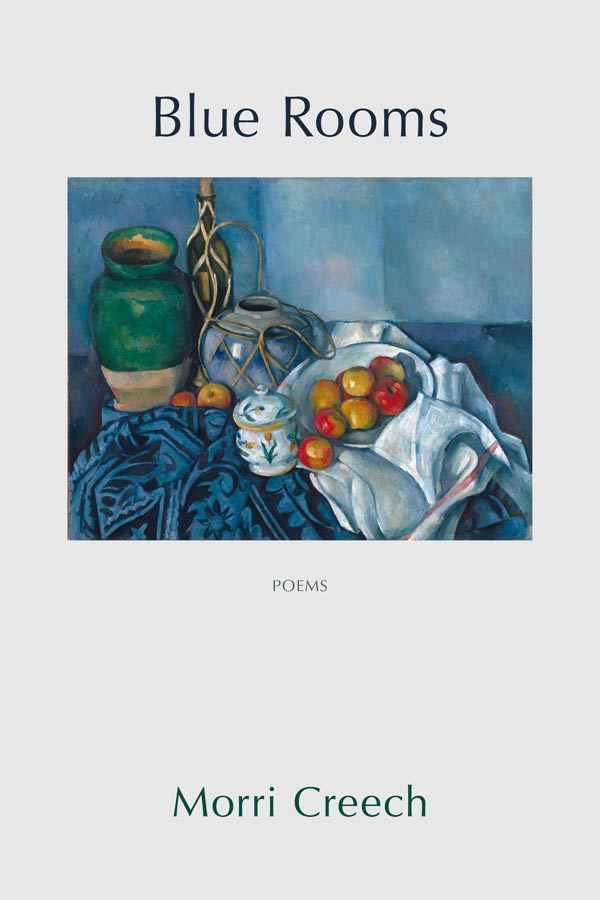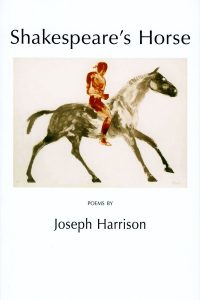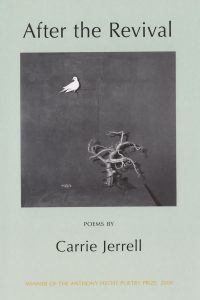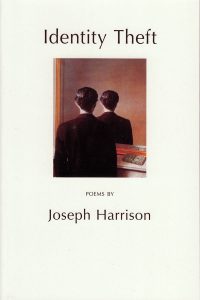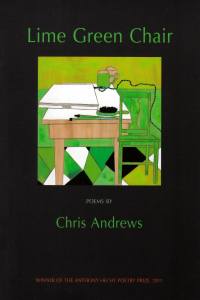Blue Rooms
Publication (US): October 15th, 2018
Publication (UK): March 15th, 2019
£9.99
Morri Creech’s eagerly awaited fourth collection of poems, Blue Rooms, explores the uncertain terrain between conscious perception and the objective world. It includes powerful lyric sequences that examine Magritte’s surreal investigations of the elusive self, Cézanne’s attempts to limn the dynamic nature of reality, and Goya’s unflinching depictions of cosmic and historical horrors—all of this while balancing rich language with the exacting formal control we have come to expect from this poet, whose last collection was a finalist for the Pulitzer Prize.
Blue Rooms
In these poems, Morri Creech, one of our finest formal poets, confronts the fundamental mystery of language—the way the world is captured by and transformed into words. In the tradition of Wallace Stevens, he combines philosophical insight with eloquence and wit, as he marvels at how the mind is able ‘to conjure matter purely through perception.’
— Adam Kirsch
Blue Rooms is a clear-sighted book, arresting in the beauty of its imaginative and linguistic artistry, but also in the elegiac power it wrings from the poet’s dead-level doubts about the whole idea of arresting beauty with imagination and language. Creech pushes these anxieties past conventional literary paradox into the realm of human consequence, till they open out, naturally, into a number of serial meditations that furnish the poet with occasions to ponder the limits of memory, experience, perception, and reality itself, all with his usual tact and acuity. Then, in the same book, Creech can turn around and give us, in a less speculative vein, ‘The Confession,’ a devastating monologue, spoken by one of the perpetrators of a lynching, that affirms the promise of good poetry as a spur to serious moral reflection. Morri Creech engages and challenges his reader, and himself, at the intellectual, philosophical, and emotional levels, and the result is a truly dynamic and remarkable book.
— Joshua Mehigan
These lucid, elegant poems suggest an indebtedness to Wallace Stevens and Anthony Hecht, but it is primarily the late Howard Nemerov whose temperament and genius Morri Creech has so brilliantly rechanneled in Blue Rooms. Like his precursor, Creech attends to the everyday (what he calls ‘the modest raptures of the ordinary’) with grace and gravity, to move us ‘beyond the reach of language.’ This stunning, compact volume delicately leads us from the familiar to the infinite, blending together seamlessly the imagined and the real. I loved reading this book.
— Willard Spiegelman
Cézanne
1.
The man with brush and palette knife
Watches the gleaming light of Aix.
A scrim of cloud goes skimming by.
If it is a solitary life
To paint with brush and palette knife
The spheres, the cones, and cylinders
Of nature in a layered light,
Then this is the man and these the right
Structures and geometric shapes
To see things by. The colors shift
Beneath the essences distilled
Of mountain, orange, pine, or peach.
The world and his perception rhyme
On a canvas of arrested time.
2.
An ancient sun has shed its blue.
Here the wind goes slow, then still,
Beneath a smear of deeper brown
On rooftops at the edge of town.
A balding man stands on the hill.
He sees the sea, shades it the hue
Of consciousness, with strokes of white,
One island like a far meringue.
To set things down the way they seem
And get the sullen colors right,
Shape of a woman’s folded hands
Or oranges wrapped in swaddling bands,
Those stray folds where the shadows start,
Are all his labor and his art.
The Waywiser Press
The Confession
I could draw you a picture if I had a mind to.
Out past the last road there were woods and a still.
There were cars in front of a ramshackle barn,
The moon in a cloud and a tree on the hill.
I remember the raw December weather,
Boys shouting curses and most of them drunk.
I remember the wind in the barley stubble.
I remember the man they dragged from the trunk.
The moon appeared and disappeared.
Headlights and whiskey. A tree on the hill.
We tied the knot and we threw it over.
It took half an hour for his legs to go still.
Just boys, for all that, in December weather,
Settling a grievance, correcting a wrong.
I remember one shoe kicked off in the heather.
I remember my feet hurt from standing so long.
The place may be there. I could draw you a picture.
The moon in a cloud and a tree on the hill.
Damned if I know how I see it so clearly.
Don’t ask me to speak of it. Damned if I will.
The Waywiser Press
Cezanne 2https://surf.pxwave.com/wl/?id=3DbDOolCNpW8f2acPgBpnuO6dBZ0RxHW&fmode=open&file=.mp3
The Confessionhttps://surf.pxwave.com/wl/?id=NCW3082kISDTdfk3J4U48bBVbIqLzUTg&fmode=open&file=.mp3
Excerpts
Cézanne
1.
The man with brush and palette knife
Watches the gleaming light of Aix.
A scrim of cloud goes skimming by.
If it is a solitary life
To paint with brush and palette knife
The spheres, the cones, and cylinders
Of nature in a layered light,
Then this is the man and these the right
Structures and geometric shapes
To see things by. The colors shift
Beneath the essences distilled
Of mountain, orange, pine, or peach.
The world and his perception rhyme
On a canvas of arrested time.
2.
An ancient sun has shed its blue.
Here the wind goes slow, then still,
Beneath a smear of deeper brown
On rooftops at the edge of town.
A balding man stands on the hill.
He sees the sea, shades it the hue
Of consciousness, with strokes of white,
One island like a far meringue.
To set things down the way they seem
And get the sullen colors right,
Shape of a woman’s folded hands
Or oranges wrapped in swaddling bands,
Those stray folds where the shadows start,
Are all his labor and his art.
The Waywiser Press
The Confession
I could draw you a picture if I had a mind to.
Out past the last road there were woods and a still.
There were cars in front of a ramshackle barn,
The moon in a cloud and a tree on the hill.
I remember the raw December weather,
Boys shouting curses and most of them drunk.
I remember the wind in the barley stubble.
I remember the man they dragged from the trunk.
The moon appeared and disappeared.
Headlights and whiskey. A tree on the hill.
We tied the knot and we threw it over.
It took half an hour for his legs to go still.
Just boys, for all that, in December weather,
Settling a grievance, correcting a wrong.
I remember one shoe kicked off in the heather.
I remember my feet hurt from standing so long.
The place may be there. I could draw you a picture.
The moon in a cloud and a tree on the hill.
Damned if I know how I see it so clearly.
Don’t ask me to speak of it. Damned if I will.
The Waywiser Press

